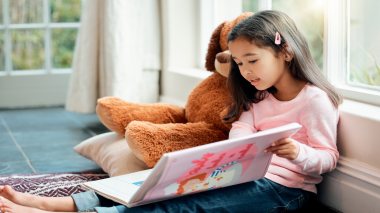Backyard activities are lots of fun, but they also present potential dangers that can ruin a relaxing day. Be aware of safety hazards to ensure an enjoyable experience for your family and guests.
Grill Safety
“Whether you use charcoal or propane, avoid potential fires by locating the grill away from your house or other outdoor structures,” says Renee Melton-Smith, MD, at Carolinas HealthCare System’s Cleveland Internal Medicine in Shelby, NC. Dr. Melton-Smith also offers these tips:- Always have a fire extinguisher handy.
- Keep children and pets away from the grill when in use.
- Never leave a grill unattended.
- Check for gas leaks on propane grills by smell or by applying soap and water to the hose (bubbles will appear if there’s a leak). Turn off the gas tank and grill if you detect a leak.
- With charcoal grills, let the coals cool completely before disposal.
Pool Safety
“More than one in five drowning victims are children 14 and younger, and most incidents happen when a child falls into a pool,” says Dr. Melton-Smith. For safe swimming, remember:- Always supervise children in or around a pool.
- Children over three should take swimming lessons, and children under three should be accompanied by an adult in the pool at all times.
- Install a fence around the pool. Make sure it is locked and children cannot crawl underneath it.
- Go feet first on a water slide.
- Don’t dive into the water near other swimmers.
- Don’t swim after drinking alcohol.
Poison Ivy
“The oil in the poison ivy is what causes the itchy allergic reaction,” says Dr. Melton-Smith. “The rash from poison ivy typically appears one or two days after a person has been exposed to the plant and the rash can last from one to three weeks.” If you think you have been exposed to poison ivy:- Wash the affected area with soap and water immediately, and wash all clothes or anything that may have the oil on its surface.
- Apply calamine lotion or a hydrocortisone cream to a rash to stop the itch.
- If your rash worsens or you develop blisters or swelling, seek medical attention.
Bee Stings
“Try to avoid a bee sting in the first place,” says Dr. Melton-Smith. “Don’t wear bright clothes or floral patterns, cover all food and beverages, and have any visible hives removed from your yard or home by a professional to cut your risk of getting stung by bees.” If, despite your best efforts, you do get stung, follow these tips:- Remove the stinger immediately. “Don’t pull the stinger out with your finger or tweezers, because this will release more venom,” said Dr. Melton-Smith. “Scrape the stinger out with your fingernail, or a straight-edged object like a credit card.”
- Treat local swelling with an antihistamine and calamine lotion.
Animal Bites
“Parents should supervise children at all times around animals and teach them to ask permission from a pet’s owner before approaching the animal,” says Dr. Melton-Smith. To prevent bites, remember:- Never approach, handle or feed an animal that you do not know.
- Stay away from all snakes and don’t go near wild animals like deer, raccoons or squirrels.
- If you are bitten, clean the bite area with soap and water immediately and seek emergency media attention if necessary.



